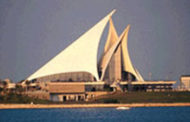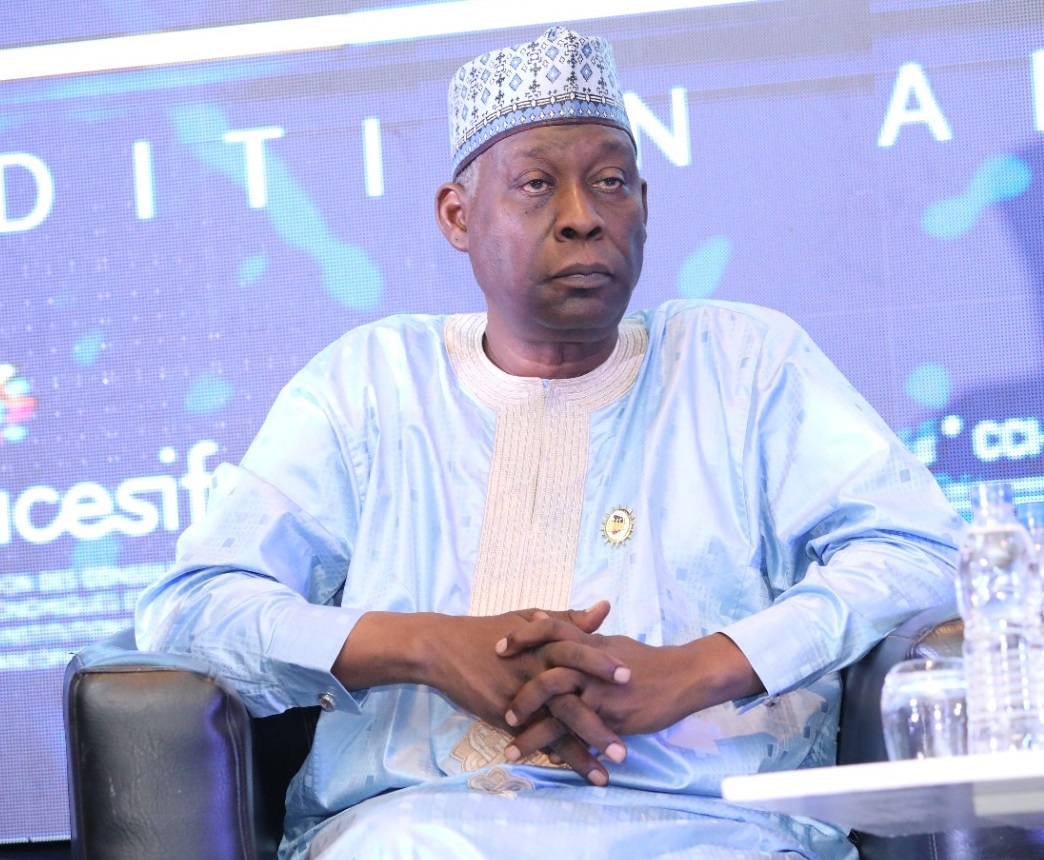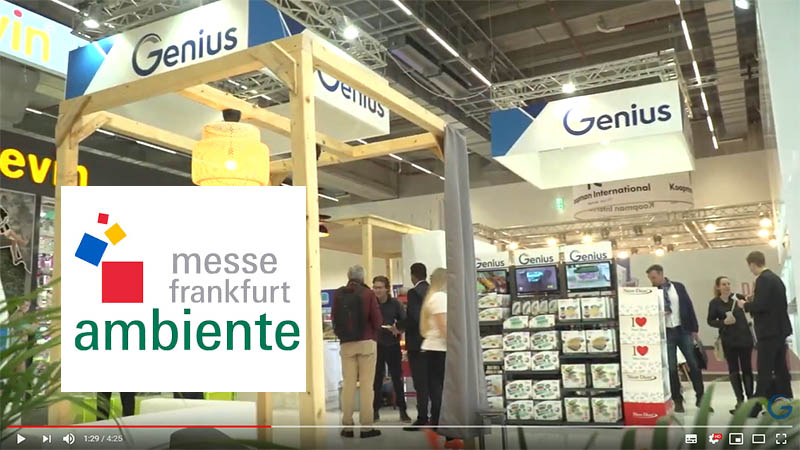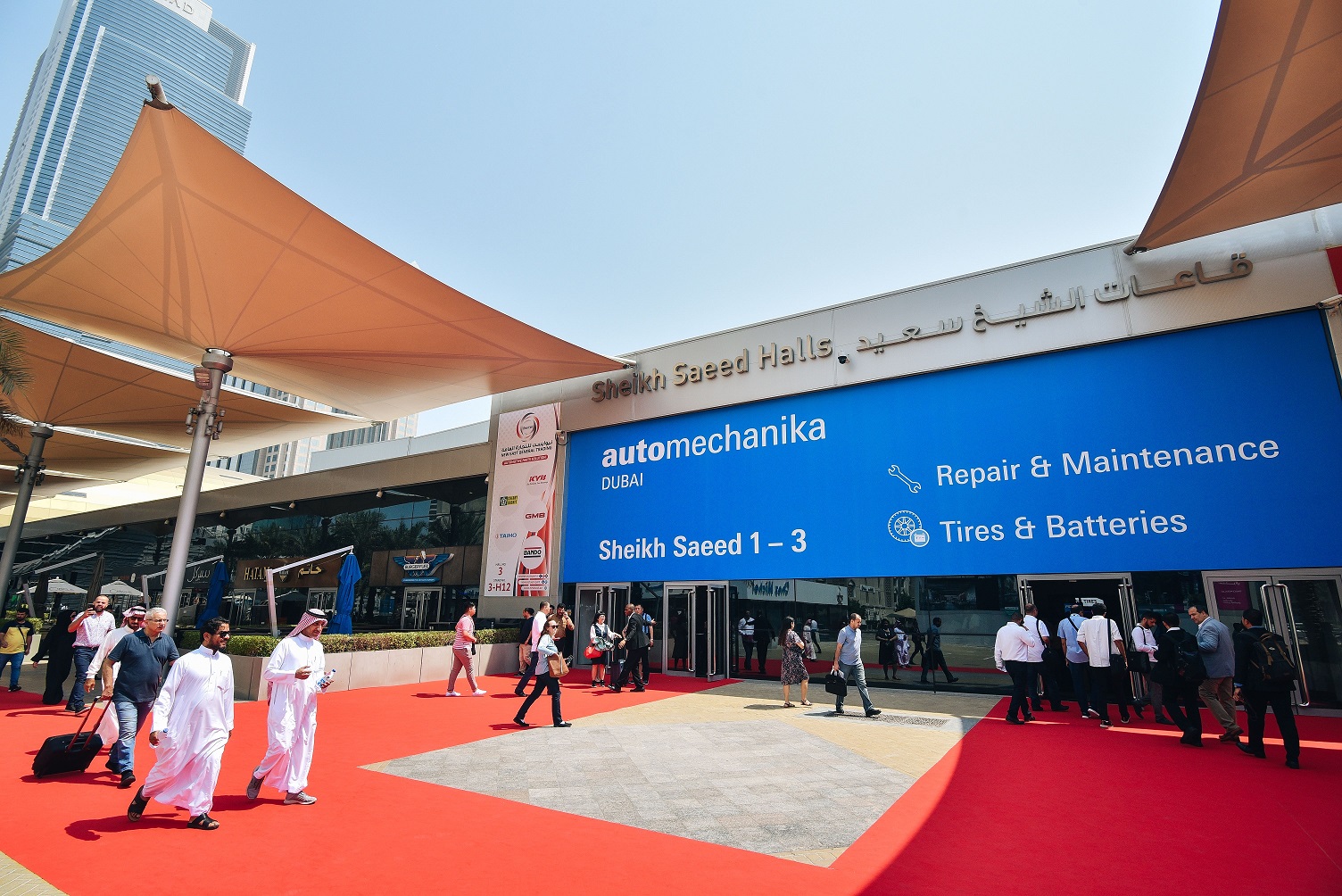Dubai has emerged as a leading supplier of tyres, tubes and batteries to many international markets. With a well organised retail and wholesaler sector, the tyre exports and re-exports business in Dubai has been a major contributor to Dubai’s rising re-export trade to the GCC region, CIS, Iran, Africa and the Indian subcontinent. Industry sources value the total trade in tyres in Dubai at around US$ 1.5 billion. According to rough estimates, tyres worth US$400 million for buses and lorries are imported to Dubai every year, mainly from China, Japan and India. Almost 65 per cent of these tyres are re-exported to regional markets like Iran, Iraq, and other GCC countries. The balance 35 per cent of tyres are sold through retail outlets for local consumption.
The growing importance of the tyre business in Dubai can be gauged by the fact that this market is expected to grow approximately 30 per cent in the next 5 years. In addition to the rising demand from regional and re-export markets like Africa, local retail sales of tyres is also expected to continue growing at a healthy pace in the coming years. The number of cars in Dubai has been increasing at an alarming pace in recent times. Dubai has one car for every 1.84 residents with an average vehicle occupancy 1.7 per car. In fact, Dubai has the highest rate of car ownership than any other city in the world. Furthermore, the absence of railway connections in the Arabian Peninsula forces most of the overland-transport via roads, making it a high-volume sales territory for tyre manufacturers.
With such a huge market to cater to, the tyres and automobile parts business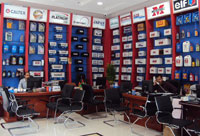 in Dubai has been enjoying a robust growth with the passing of each year. The overall automobiles sector in Dubai is made even more attractive by the fact that there are no automotive manufacturing industries. As a result, most of the vehicles and automotive parts are imported from international markets and, in many cases, further re-exported to regional and international markets.
in Dubai has been enjoying a robust growth with the passing of each year. The overall automobiles sector in Dubai is made even more attractive by the fact that there are no automotive manufacturing industries. As a result, most of the vehicles and automotive parts are imported from international markets and, in many cases, further re-exported to regional and international markets.
Dubai’s status as the regional distribution centre has helped tyre dealers in Dubai to develop new markets for their re-exports trade. As a result, a large percentage of tyres imported into Dubai are re-exported to neighbouring markets like Iran, GCC, Saudi Arabia and new and emerging markets in Africa. Many African countries like Kenya, Tanzania, Sudan, Nigeria are sourcing their requirements for tyres from Dubai. It is estimated that the global tyre market for passenger cars, light-, medium- and heavy-duty truck applications accounts for nearly 1.4 billion tyres. Dubai is fast emerging as a major player and a noteworthy distribution hub for the global tyres trade. Dubai’s strategic geographical location, together with its excellent shipping connections to various parts of the world, has helped the city emerge as a major business hub in the Middle East.
There are several reasons that are responsible for making Dubai’s tyres market such an attractive one for buyers. The city has a well-organised chain of retailers and wholesalers, an excellent sourcing network, well developed stocking and warehousing facilities and, of course, a reputation for reliability built over the years. Low import duties and direct supplies from manufacturers have contributed in keeping prices in Dubai 15-20 per cent lower than other markets in the region. It is a well known fact that most of the tyre requirements of larger markets in the region – Iran, Africa and the GCC are being fed by Dubai-based companies.
 As Dubai establishes itself in the Middle East and Africa region as the distribution hub for tyres, an increasing number of Japanese and Chinese companies have begun shifting their operations nearer to their markets, namely to the Jebel Ali Free Zone. Tyre giants such as Bridgestone, GT Radials, Dunlop, MRF Tyres and Siam Tyres are some of the big companies that have already established their presence in Dubai (either through agents and distributors or through their own offices) to further boost the distribution of their products to African, CIS and Middle East markets. It is a well known fact that most of the tyre requirements of larger markets in the region – Iran, Africa and the GCC are being fed by Dubai-based companies. Therefore, it makes sense for multinational tyre companies to set up base in Dubai in order to target these high consumption markets.
As Dubai establishes itself in the Middle East and Africa region as the distribution hub for tyres, an increasing number of Japanese and Chinese companies have begun shifting their operations nearer to their markets, namely to the Jebel Ali Free Zone. Tyre giants such as Bridgestone, GT Radials, Dunlop, MRF Tyres and Siam Tyres are some of the big companies that have already established their presence in Dubai (either through agents and distributors or through their own offices) to further boost the distribution of their products to African, CIS and Middle East markets. It is a well known fact that most of the tyre requirements of larger markets in the region – Iran, Africa and the GCC are being fed by Dubai-based companies. Therefore, it makes sense for multinational tyre companies to set up base in Dubai in order to target these high consumption markets.
With the rise of the middle class, it is clear that demand for tyres will grow worldwide – especially in countries within the geographical proximity of the Gulf. Dubai, therefore, is in a position to further develop its tyres re-export potential and become an important contributor to the increasing non-oil trade of the country. In international market developments, European tyre firms are beginning to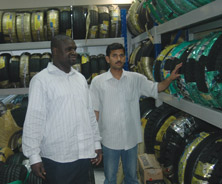 loose ground to Chinese and other Asian brands in many emerging markets. Chinese tyres are gaining popularity in several African markets. Many developing countries are price-sensitive markets and prefer to import low-priced Chinese tyres rather than the expensive European and American brands. As a result, China has emerged as a leading exporter of tyres to Dubai in recent times. However, the tyres market has had a chequered evolution in Dubai. In the initial stages, there was a substantial domestic demand for tyres. As the trade began gaining in sophistication and the product range diversified, a huge demand emerged from the South Asian countries – particularly Afghanistan and Pakistan. Iran too emerged as a major destination and the tyres trade boomed in the wholesale markets of Dubai and the city soon emerged as a major re-export centre for Iran and other GCC countries.
loose ground to Chinese and other Asian brands in many emerging markets. Chinese tyres are gaining popularity in several African markets. Many developing countries are price-sensitive markets and prefer to import low-priced Chinese tyres rather than the expensive European and American brands. As a result, China has emerged as a leading exporter of tyres to Dubai in recent times. However, the tyres market has had a chequered evolution in Dubai. In the initial stages, there was a substantial domestic demand for tyres. As the trade began gaining in sophistication and the product range diversified, a huge demand emerged from the South Asian countries – particularly Afghanistan and Pakistan. Iran too emerged as a major destination and the tyres trade boomed in the wholesale markets of Dubai and the city soon emerged as a major re-export centre for Iran and other GCC countries.
As the international tyres industry came up with newer products, a corresponding market emerged for them. With the passage of time the composition of the market and the profile of the buyers changed too. Once the domestic demand was by and large satisfied and the Iranian market cooled off, the break-up of the former Soviet Union saw an influx of buyers from the CIS states with a huge demand to buy tyres to feed the seemingly insatiable demand in regions that had hitherto been virtually cut off from the rest of the world. Recently, African buyers have emerged as the new bulk buyers of tyres in Dubai. However, unlike their counterparts from the CIS, most buyers from Africa have long been using the services of shipping lines and hire containers to ship their goods back to their countries, where they sell them at a premium. Although the CIS market is much bigger than that of Africa, leading tyre dealers in Dubai are welcoming the brisk business as the number of CIS buyers begins to level off.
Having developed a loyal and strong clientele in the international markets, Dubai-based tyre dealers have been quick to build on their success. Some enterprising tyre dealers in Dubai have launched their own brands to cater to the rising demand for good quality tyres in the regional and international markets serviced by Dubai. Al Dobowi Tyres, one of the leading tyre dealers in Dubai, has been successfully marketing its Infinity brand of tyres in many international markets including Europe, Asia and Africa. The excellent response and the popularity of Infinity Tyres is testimony to the rising popularity of Dubai as a source of quality tyres at reasonable prices. Zafco Trading, often termed as the ‘King of Tyres’ in the Dubai tyres market, is one of the largest tyre dealers in Dubai. The company has been exporting its brand of Zeetex Tyres to several international markets for many years. Known for their long life and high performance, Zeetex Tyres have been enjoying rising popularity in world markets and are exported to various countries around the world.
With such a rapid pace of development, the tyres trade in Dubai is sure to grow further in the future and emerge as a significant contributor to the economic growth of Dubai as a whole.
LUCRATIVE MARKET
It is estimated that the UAE consumer tyre market imports approximately two million units worth about US$80 million every year. However, the truck tyre market, which is an important segment of the UAE market, is worth US$160 million and the UAE imports approximately 400,000 units every year. Rough estimates put the total market value of the tyre market in the UAE at approximately $240 million. Forecasts are that the truck tyres market is going to shrink with the decrease in construction activity, but the consumer tyres market is expected to grow by 10 per cent in the next few years.
 The UAE imports majority of its tyres from Japan, China, India, South Korea, Thailand, Malaysia and Turkey. A majority of the UAE’s imports are re-exported to regional and international markets like Iran, Kuwait, Bahrain, Iraq, Pakistan as well as African markets like Djibouti, Kenya and Nigeria.
The UAE imports majority of its tyres from Japan, China, India, South Korea, Thailand, Malaysia and Turkey. A majority of the UAE’s imports are re-exported to regional and international markets like Iran, Kuwait, Bahrain, Iraq, Pakistan as well as African markets like Djibouti, Kenya and Nigeria.
“Dubai’s status as the business hub of the region has contributed significantly in the growth of the tyre market in the emirates,” says Surinder Kandhari, chairman of the Dubai-based Al Dobowi Group during an interview with Business Guide. “Many regional and international markets have been sourcing their requirements for tyres from Dubai for many years – thereby further consolidating Dubai’s status as a major market for tyres in the Middle and African markets,” he says.
As Dubai’s tyre market gains in stature and size, new entrants are trying to jostle for position in this lucrative market. Proof of this was seen at the recent Automechanika trade exhibition held in Dubai where a strong contingent of tyre dealers and manufacturers from all across the globe were showcasing their products in a bid to further increase their market share in this lucative market.








